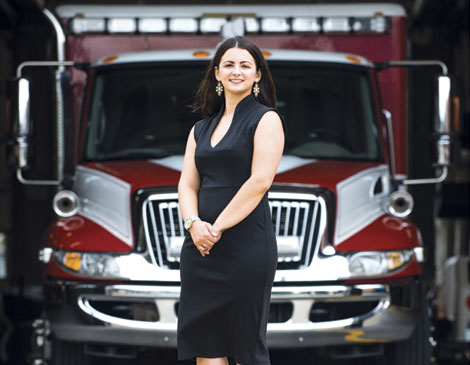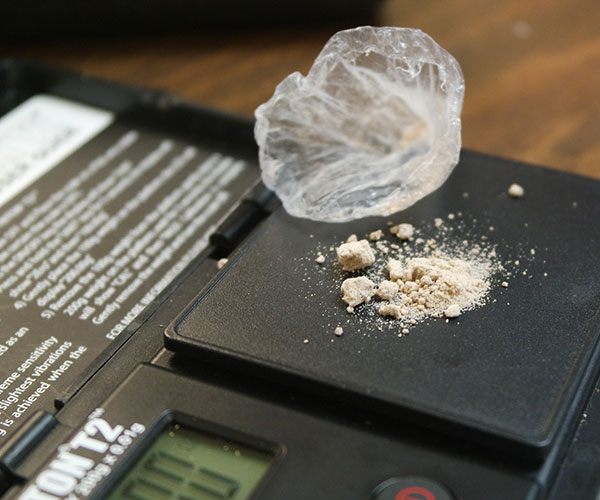Gina Bonaminio remembers the exact moment she wanted to get sober.
It was September 2013, and the 20-year-old Amherst native had been fired from her job at the city’s now-closed Cork’s Wine Bar & Bistro. This dismissal stung: She prided herself on being a hard worker and was already having a tough year. In April, her brother had been killed in a car accident.
However, the opioid habit Bonaminio had developed in high school had taken over her life. Her parents had issued ultimatums and even kicked her out of the house. She had made two previous sobriety attempts at treatment facilities. But nothing had worked.
A day after being fired, Bonaminio did her calculations. “I figured out that I had maybe 12 more hours until I was sick,” she recalls. “I had no money. I had already stolen everything out of my parents’ house that I could steal, and I had already pawned all my electronics and jewelry.”
Out of options and not wanting to be sick from withdrawal, Bonaminio checked into the Glenbeigh addiction treatment center in Rock Creek, Ohio. She stayed for 26 days. Seven months in recovery housing at Scarborough House for Women in Tremont followed and, after that, Bonaminio got an apartment with a friend.
This time, treatment stuck.
“All these things fell into place for me perfectly at the right time,” she says. “I had the opportunity at the exact same time that I had the willingness.”
Now 24, Bonaminio will mark four years of sobriety Sept. 12. Today, she’s aiming to help others who have been in her shoes, in order to reduce the shame, guilt and stigma that often surround addiction. “This is not a moral failing,” she says. “It’s a chronic illness.”
Bonaminio works as a peer supporter at the women-only, eight-bed recovery housing Woodrow Project in Lakewood, where she encourages residents to make recovery plans to achieve their goals. Sometimes Bonaminio’s work involves figuring out if someone needs food assistance, health insurance or doctor referrals. At other times, she simply listens.
“It’s really connecting with the women and hearing from them what they need,” she says, “having a conversation with them.”
While in recovery, Bonaminio earned her chemical dependency counselor assistant certification. “I’ve been where they are,” Bonaminio says. “I’m able to say, ‘Hey, I understand the way you’re feeling. You’re not alone.’ ”
This fall, she’ll also be a peer support coordinator for Project Soar, a partnership between the Alcohol, Drug Addiction and Mental Health Services Board of Cuyahoga County, Cleveland Clinic Lakewood Emergency Department, city of Lakewood and the Woodrow Project.
The initiative, scheduled to launch Oct. 1, will employ state-certified peer supporters such as Bonaminio who have received specialized training and education to speak with those dealing with addiction.
They will meet with individuals who have overdosed at the Cleveland Clinic Lakewood Emergency Department, and, if people are open to it, conduct a follow-up appointment at home.
Peer support is also available to anyone who drops in at another pathway to treatment: Lakewood’s Fire Station No. 1. The Madison Avenue outpost is being transformed into a “safe station” open 24/7 for anyone looking for help.
“I can’t go through life thinking that I went through that stuff for nothing,” Bonaminio says of her addiction. “For so long, all I knew myself as was a drug addict. I’m in recovery — I will always be somebody in recovery from substance use. I wouldn’t feel as if I was doing my duty if I didn’t help other people.”




